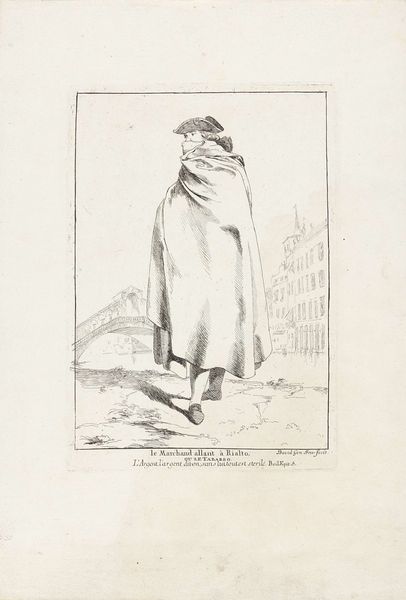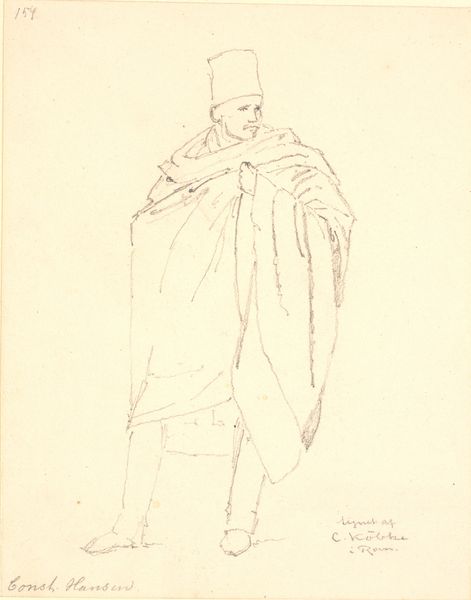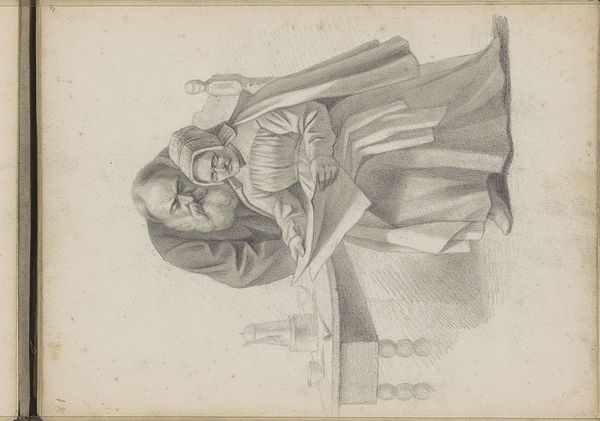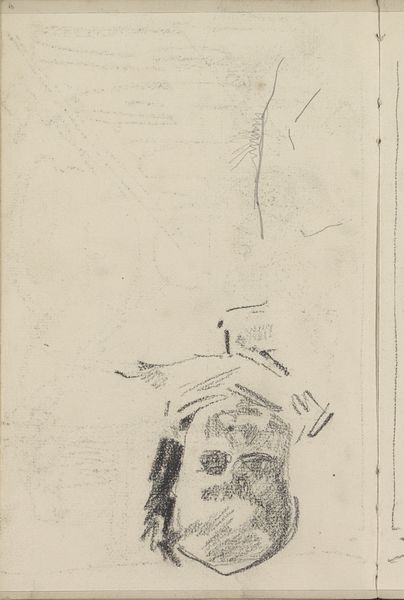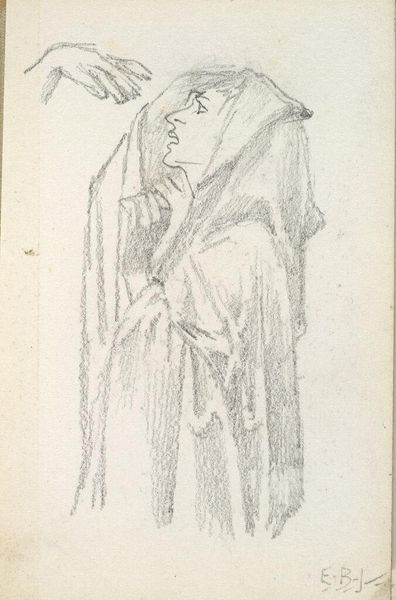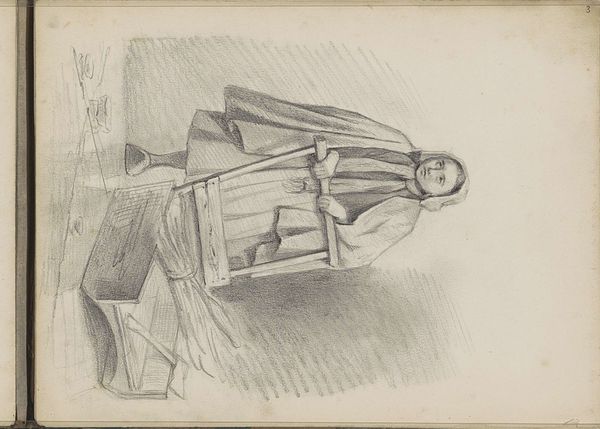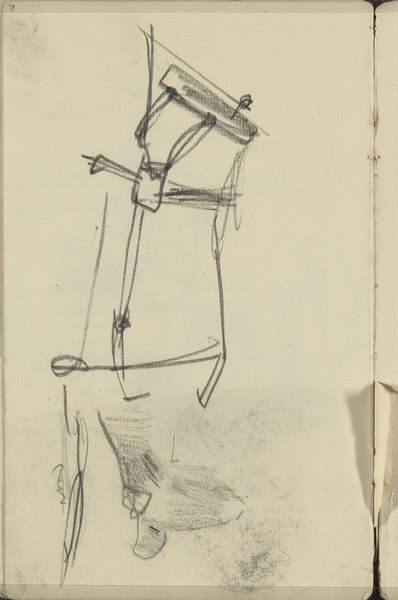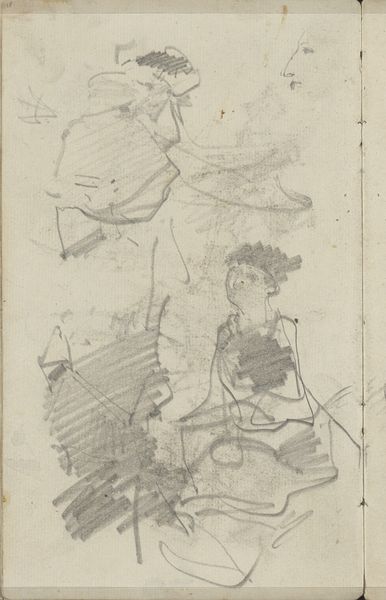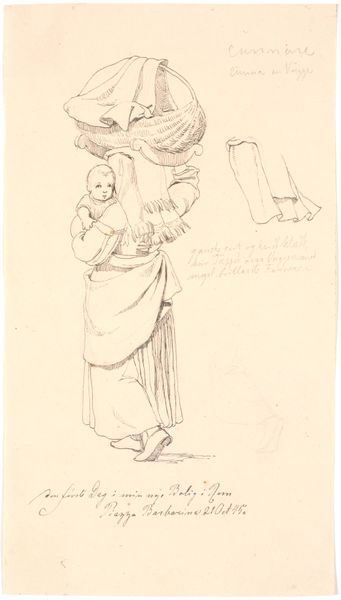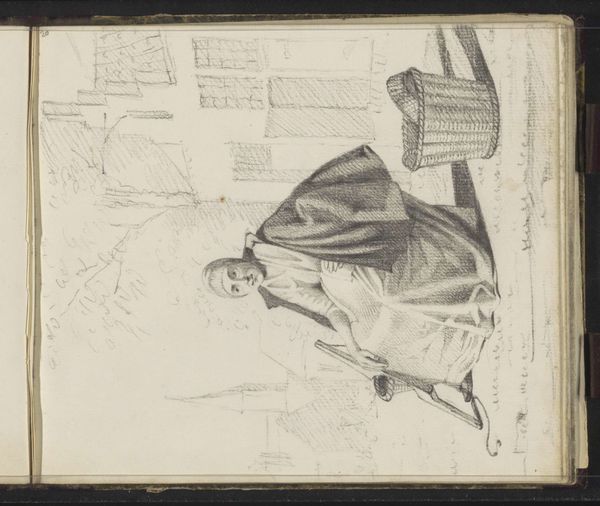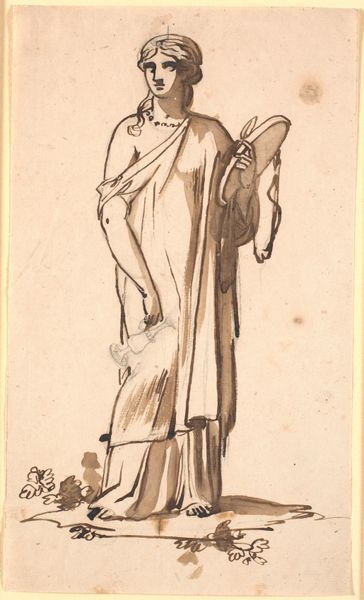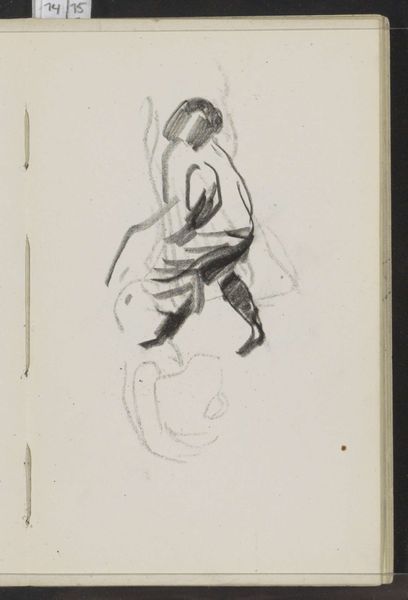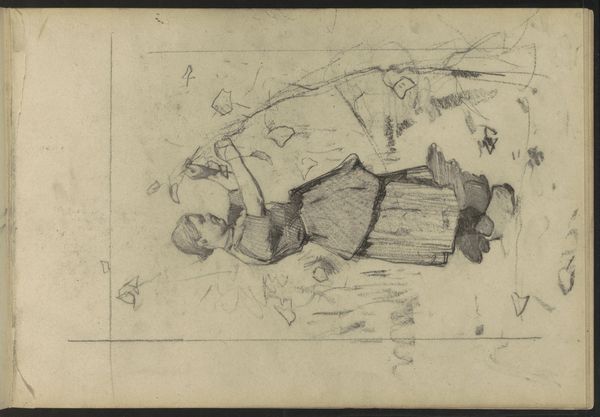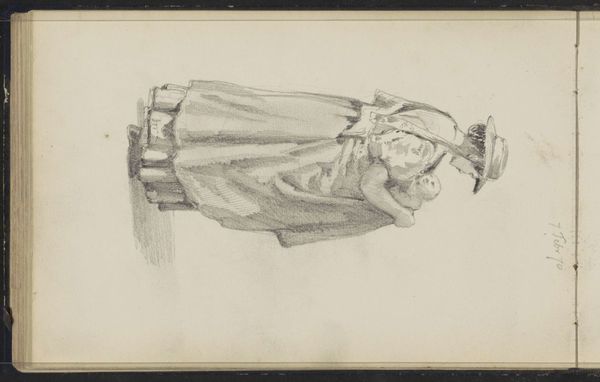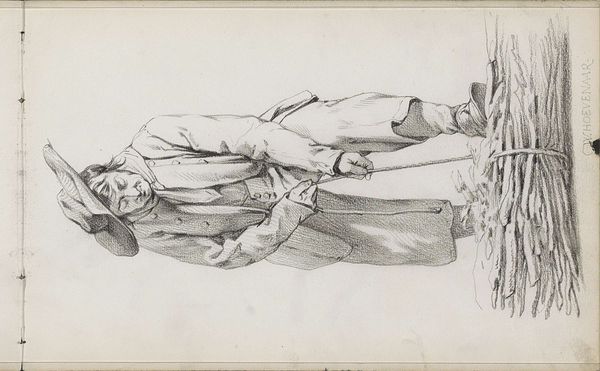
Spotprent op de redevoering van baron Van Zuylen van Nijvelt, 1864 1864
0:00
0:00
drawing, print, ink
#
portrait
#
drawing
#
comic strip sketch
#
imaginative character sketch
#
quirky sketch
# print
#
caricature
#
personal sketchbook
#
ink
#
idea generation sketch
#
sketchwork
#
ink drawing experimentation
#
sketchbook drawing
#
history-painting
#
storyboard and sketchbook work
#
sketchbook art
#
modernism
#
realism
Dimensions: height 275 mm, width 215 mm
Copyright: Rijks Museum: Open Domain
Editor: This is a caricature, titled "Spotprent op de redevoering van baron Van Zuylen van Nijvelt," made in 1864 by Johan Michael Schmidt Crans. It's a print using ink. The first thing that strikes me is how crammed the banner is with symbols! What do you see in this piece beyond just a historical record? Curator: Oh, I'm immediately drawn to the artist's playfulness! See how Crans uses the banner not just as a symbol of a political party, but as a visual manifesto, almost a parody of one? It's brimming with insider jokes, I imagine, relevant to the political debates of the time. Does the somewhat chaotic nature of it suggest something to you about the “new party's” cohesiveness, or lack thereof? Editor: I see what you mean. The symbols seem almost contradictory, mashed together. The text on the banner reads "All principles are difficult to maintain," suggesting irony. Do you think that the arrangement on the banner points to how unwieldy they felt these “principles” really were, practically speaking? Curator: Precisely! It feels almost as if Crans is suggesting these political ideals, while lofty in theory, are a real struggle to uphold in the real world. Maybe even a commentary on the very nature of political alliances—fleeting and sometimes absurd. The baron delivering the speech is depicted somewhat dismissively; this wasn’t intended as a supportive portrait, I’d wager. What kind of feeling does that give you when you think of the artist presenting that commentary? Editor: So, instead of a straightforward depiction, it’s a complex commentary, veiled in symbolism and humor, reflecting on the political climate of the time? The chaos actually becomes the message. I would guess that Schmidt Crans maybe wasn't buying what the new party was selling? Curator: A sharp observation! I learned again to look closer for meaning even within perceived "chaos". It definitely gives some food for thought! Editor: Agreed. I will be sure to remember how art can package a rather complicated opinion in the simplest of imagery.
Comments
No comments
Be the first to comment and join the conversation on the ultimate creative platform.
